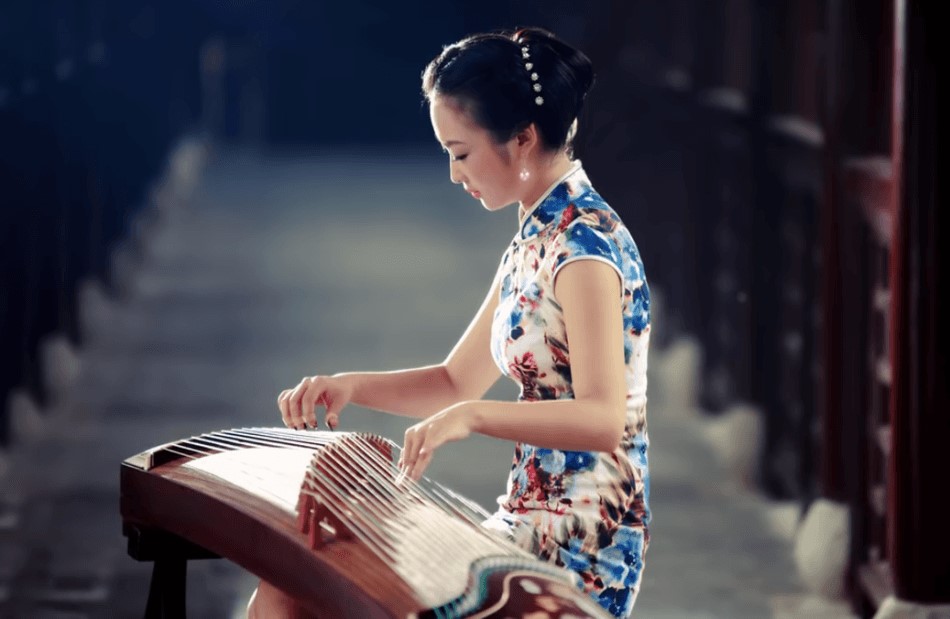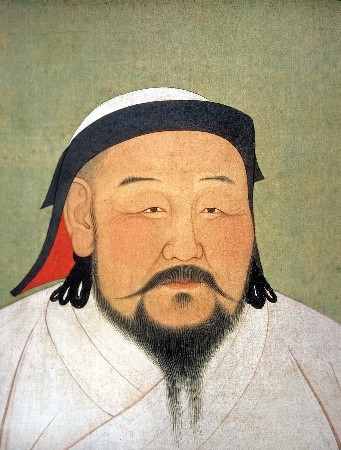Nobody does it better than Marco

ANDREW HAS AN EXCLUSIVE CONVERSATION
WITH MARCO POLO, ONE OF THE WORLD’S GREATEST TRAVELLERS
In the fine silks gifted by the Khan himself, Italian Marco Polo reclines on a low seat, a cup of fermented mare’s milk in his hand. His eyes still gleam with curiosity, an outsider who has become an insider in the most powerful empire on earth.
It is 1287, in the famed Xanadu, also known locally as Shangdu. It is the summer capital of the Yuan dynasty ruled by Kublai Khan, grandson of Genghis Khan. I’ve come here to meet the legendary Marco Polo, who has agreed to talk to me about his extraordinary travels.
Golden light drapes over the marble halls. The air is thick with jasmine and sandalwood, mingling with the distant aroma of roasting meats from the banquet halls. Outside, I have watched enthralled as Mongol riders train in the fading daylight, their silhouettes moving swiftly across the grasslands. We’re sitting in a discreet room in the Kahan Palace, and Polo turns his attention to me.
I detect a cool breeze on my cheeks from somewhere mysterious within this fabled palace. The sound of a guzheng, a Chinese plucked zither, plays in the distance and catches my attention. It’s time for me to start our conversation.

Tell me, great traveller, thank you for inviting me. What was your first impression when you arrived in Xanadu?
“It was unlike anything I had ever seen. The palace, built with walls of marble and gilded pillars, seemed to float on the plains like a mirage. The Khan’s vision is not of walls and fortresses. It is openness, lush gardens, and vast halls where different peoples mingle. Outside are avenues where Persian, Arab, and Chinese merchants trade side-by-side. In his mind, this is not just a city; it’s an idea, a place where worlds meet.”
You serve as an envoy for Kublai Khan; what is that like?
“It is an honour few foreigners are granted. The Khan values those who bring knowledge from afar, and he has entrusted me with missions to distant provinces, where I see firsthand the workings of his vast empire. I ride with his messengers, cross rivers on boats of woven reeds, and visit cities where the streets are lined with silver lanterns. I learn from men of all nations, hear the wisdom of Buddhist monks, the calculations of Persian astronomers, and the strategies of Chinese generals. In his court, one must be both a listener and a speaker.”
You have travelled through Asia along the Silk Road. What has been your most challenging journey so far?
“Traveling to the empire’s borders, where the lands grow wild and lawless. There are places where even Khan’s reach is not absolute, such as mountains where brigands watch from the cliffs and jungles where fever seizes the strongest men. The journey south to Burma was one of the hardest. The air was thick and wet, the rivers were alive with beasts, and the people were fierce warriors who did not submit easily. But the Khan’s army moves like the wind, and resistance crumbles before it.”
How is Kublai Khan different from the kings of Europe?
“My friend, he is unlike any king or pope I have known. In the West, kings rule by divine right, holding on to their thrones as their kingdoms shatter. Here, power courses like a river. It moves and adapts. The Khan listens, listens really, and he learns. He does not govern by fear alone but by wisdom, by taking the measure of the strengths of every nation he conquers. He layers himself with scholars, strategists, and merchants. He does not say, ‘What do they owe me ?’ but ‘What can they teach me?’ That is the essence of his empire.”

What have you found most surprising about life in China?
“The size of its cities is larger than anything in Christendom. People live not in feudal disorder but in harmony, following laws that seem to bind them like an unspoken contract. And the wonders, paper money, canals that stretch for hundreds of miles, markets where spices from India sit beside silks from Persia. There is an order here, a design unlike anything I have known.”
You’ve been holding here long in your once endless journeys. What do you miss most about your hometown of Venice?
“The sea. Salt in the air, bells of San Marco at dawn, a hum of gondolas passing through the canals. Here, the rivers are wide, the lakes vast, but the sea … the sea is something else. Sometimes, I dream of Venice in the dark at night, of walking on its narrow streets. And yet, when I wake up, I know I would not trade this life for anything else. The world is far too big to be stuck in one place forever.”
You’ve been pausing here long in your previously endless travels. What do you miss most about Venice, your hometown?
“The sea. The smell of salt in the air, the bells of San Marco at dawn, the hum of gondolas moving through the canals. Here, the rivers are wide, the lakes vast, but the sea… the sea is different. Sometimes, in the stillness of the night, I dream of Venice, of walking its narrow streets. And yet, when I wake, I know I would not trade this life for anything. The world is too vast to remain in one place forever.”
Do you think you will ever return home?
“I do not know. The Khan trusts me. He has given me a place in his empire, a purpose-filled life. But one day, perhaps… I may wish to see Venice again, bring back the knowledge I have gained, and tell my people what I have seen. Though I wonder, will they believe me? Shall we meet again so I can share more of my story with you? Would that please you?
Very much so. For now, I thank you for your generosity and time. I will make the arrangements to return.
The music in the distance fades, and the stars emerge outside the steppe. The Mongol Empire stretches beyond the horizon, and Marco Polo, once a Venetian merchant’s son, now sits at its heart, a witness to history as it unfolds.
Watch out for my second meeting in Xanadu and my second, exclusive conversation with Marco Polo. For more encounters like this, check out my new book, Conversations with Remarkable Women, which is now on Amazon.
Sign up for updates on the next book: Conversations With Marvellous Muses.
This intriguing book is hard to put down and makes a memorable gift for someone you care about.